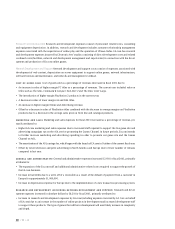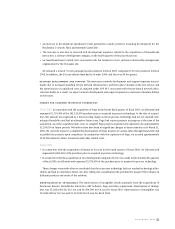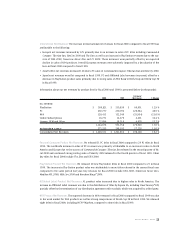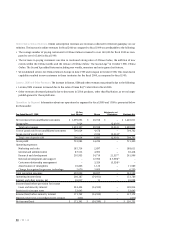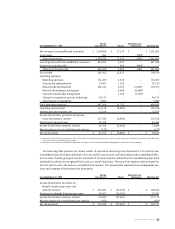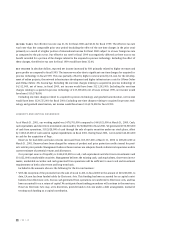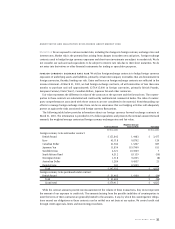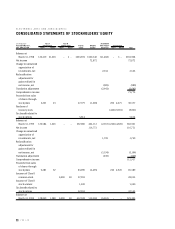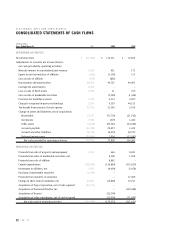Electronic Arts 2001 Annual Report Download - page 32
Download and view the complete annual report
Please find page 32 of the 2001 Electronic Arts annual report below. You can navigate through the pages in the report by either clicking on the pages listed below, or by using the keyword search tool below to find specific information within the annual report.
30
2001 AR
EURO CONVERSION
On January 1, 1999, eleven of the fifteen member countries of the European Union established fixed conversion
rates between their existing currencies (the “legacy currency”) and the one common legal currency known as the
“Euro”. From January 1, 1999 through June 30, 2002 the countries will be able to use their legacy currencies or the
Euro to transact business. By July 1, 2002, at the latest, the conversion to the Euro will be complete at which time
the legacy currencies will no longer be legal tender. The fixed conversion rates between their existing currencies
have eliminated exchange rate risk among the member countries.
The conversion to the Euro has reduced the number of forward contracts that we use to hedge the exchange rate
risk. The forward contracts that were used to hedge the individual legacy currencies have been replaced by a sin-
gle Euro hedge contract and the intercompany transactions among subsidiaries within the European Union are no
longer subject to exchange rate risk.
RISK FACTORS
Our business is subject to many risks and uncertainties which may affect our performance. Some of those risks
and uncertainties are as follows:
• Platform transitions such as the one now occurring typically depress the market for video game software until
new platforms achieve a wide market acceptance.
• Potential delays in the launches or limited supply of the Nintendo GameCube and the Xbox could delay or
reduce shipments of our products for these platforms.
• Our business is both seasonal and cyclical, especially during the current platform transitions and uncertain eco-
nomic conditions in the United States.
• New video game platforms create additional technical and business model uncertainties.
• Our significant investment in EA.com may not be successful or generate profits.
• Acceptance of our online products by paying subscribers is unproven.
• The business models and technology for e-Commerce and online gaming are unproven.
• Product development schedules are frequently unreliable, particularly for products for new platforms, and
make predicting quarterly results difficult.
• Our business, our products and our distribution are subject to increasing regulation in key territories.
• Our platform licensors are our chief competitors and frequently control the manufacturing of our video
game products.
• We face intense competition for talent from competitors.
For a discussion of these and other important risk factors, see the heading “Risk Factors” in our Annual Report
on Form 10-K for the year ended March 31, 2001.


